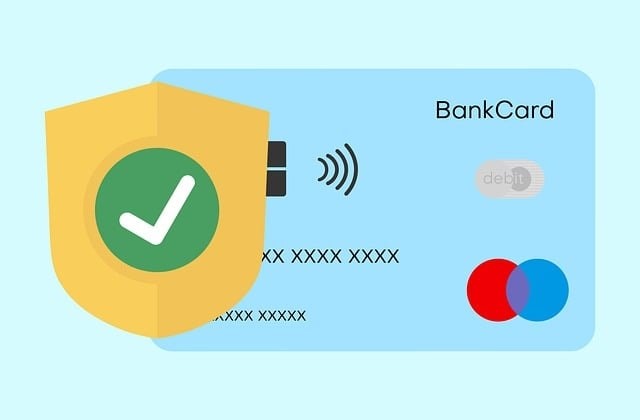This section sets the background for dealing with the issue of Instagram dating scams by underlining ever-growing online dating, the risks accredited to social media, and warning calls for the same. It points out the emotional and financial dangers going forward with such romance scammers, who take advantage of the different features on Instagram to find potential victims. The aim of the introduction is to serve as a guide for readers on the need for vigilance when new relationships are formed online.

Scammers take advantage of Instagram’s fame and popularity to run romance scams. They create profiles with attractive pictures, usually stolen from other accounts, in which they impersonate an actual user. After finding a suitable target, the conversation is initiated with flirtatious messages that confess their love and intimate companionship for the victim’s trust and confidence. This will, through time, in most instances, manipulate a person into sending money, sharing personal information or explicit images for emergencies, money to travel to see them, or health issues. Most times, these scams have devastating financial and emotional consequences for their victims. Therefore, one can understand why recognizing the signs is crucial regarding romance scammers telling how to protect oneself in the digital world of dating.

Identifying signs of a scam on Instagram, particularly those related to dating and romance, is crucial for protecting oneself from potential fraud. Here are key indicators that you might be interacting with a romance scammer:
Understanding and recognizing these signs will help you a great deal to go through interactions on Instagram much safer, protecting your emotional well-being and financial security. Remember that it would be best to exercise caution in any new online relationship, especially in those where substantial personal feelings and finances may be involved.
Understanding how scammers operate, especially those targeting people who reported “dating and romance scams” via Instagram, for example, forms the basis for one to be able to identify such probable threats and avoid them. What follows are the common methods that they usually use:

By being aware of such operational tactics of scams, people could protect themselves well from falling prey to malicious schemes. Be always cautious with relationships on the net when people either seem too good to be true, show up too much, or rush into attachment.
With the rise in the incidents of scams on Instagram regarding dating and romance, it will be very relevant to protect oneself. Safety would involve profile authenticity verification. Inconsistency in the contents and stories uploaded is a sure-shot indicator, or one can also use a utility like Google Reverse Image Search to check if profile pictures have appeared anywhere online. Be discreet with your personal information. Give no sensitive information to which they can take unfair advantage, such as your financial details or social security number, especially money, to a romance with someone you have met online.

You should also set your settings to make them more private. Consider making your profile private and limited to the people you connect with. Should there be just a small fraction of feeling that something may be off in a conversation, when the other person rushes intimacy or asks for money, this acts as a red flag. Scammers make up some emergency to get money, hoping to tug at your heartstrings.
Educate yourself about scammer methods. Many of them will make up some long, emotional stories of needing money for emergencies or to pay for travel. The Federal Trade Commission reports a huge rise in the cash lost to romances, cams hence, and vigilance, which is at an all-time high.
Lock down your online accounts with those features offering two-factor verification and the like, which make the life of scammers much more difficult. If you’re ever in doubt about the authenticity of a person, discuss your interactions or relationships with those around you, namely friends and family. Sometimes, an outside perspective will bring much clarity and prevent potential scams.
Remember, if you see anything suspicious, report it to Instagram immediately. This will help protect not only your account but also the community from fraud. Be well-informed and remain cautious so that you will enjoy connecting with others online while actually keeping your personal and financial information secure online.
First and foremost, you need to stop talking to these kinds of scammers once you’ve realized what has been going on. Next, document evidence through screenshots and messages about your interactions with fake accounts. These may be helpful in aiding the report. Report them straight to Instagram with the reporting feature in the ap so they can take proper action against such fraudulent accounts.
If any of the loan scams in these cases have involved sharing financial information, then one is advised to take immediate action by calling the bank or credit card provider to prevent unauthorized transactions. Cases are also recommended to be reported to the local authorities and, if possible, even to the national fraud reporting services for advice on further measures that might be taken about others who might fall into a similar scam.
The above measures will help you protect not only your interests but also contribute towards a safer cyber community, as it aids the platform in identifying and acting against fraud.

The support of the person who may have been victimized via an Instagram dating scam involves emotional, practical guidance and education to reduce the possibility of a recurrence for sale investment scams. Being exposed to such activities, individuals can be left in disarray financially and emotionally. An individual approach should involve making sure a person receives empathy and understanding, where the psychological impact of being deceived and exploited is overwhelming.
Provide Emotional Support: Victims of scams may view the experience as embarrassment or even sources of guilt and shame. It is important to create a non-judgmental environment where they are allowed to express their emotions and reconcile events in their minds. Professional counselors and support groups will also go a great deal in ensuring that they get the advice necessary for them to put their lives together.
Practical Support: This would involve taking the victims through all the necessary steps to secure their information online. These include but are not limited to changing passwords, updating privacy settings, and removing any information on their profiles that might have been compromised. Provide counseling on how to report to Instagram and local authorities to make sure that the scammer does not continue to harm others.
Educational Outreach: Educate the victim and the larger community on the warning signs and red flags of a romance and dating scam to prevent potential future occurrences. Sharing events, articles, and safety tips regarding online dating and lottery scams exposes individuals to many of the telltale signs and signals before getting emotionally or monetarily caught up with a scammer.
Legal Advice: When the losses from job scams are major, referring victims to legal advice may be important. A number of organizations provide legal services aimed at recovering lost money on behalf of a victim, when at all possible, and to instigate action against the scammer.
In this way, supporters can assist in reducing further damage from an Instagram dating or romance scammer and help the victim regain their confidence in using social media and online relationships safely.

Encourage them to seek further education and support using online communities and resources. Mention that certain forums and websites were solely created to deal with scam awareness and prevention, such as dating sites such as allaboutdatingscams, which can be a great avenue for community support and finding up-to-date information about scamming tactics.
Summarize the crucial points discussed in this book and reemphasize that vigilance, education, and inclusive community support are indispensable in tackling Instagram Dating Scams. Finally, in the end, readers should be encouraged to apply all the knowledge and tips highlighted in this book to protect themselves and those dear to their hearts from falling victim to romance scams.
This structured approach will educate the readers and simultaneously equip them to take positive steps against possible fraud, improving their online dating experience.